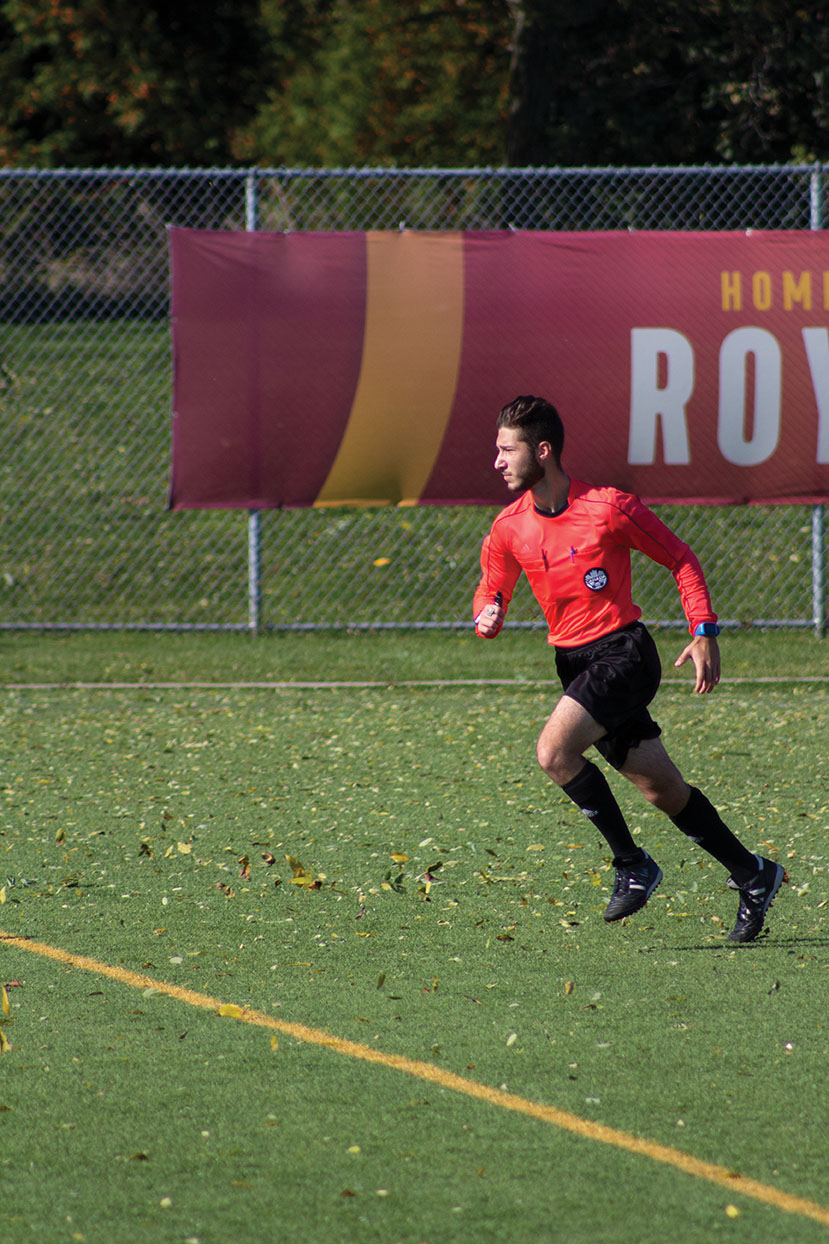By Kevaughn Wilson
You are always being critiqued. Your every mistake is broadcasted among people you don’t know. Your job demands 100 per cent of your attention and nothing less. Even on your good days, you are somehow the bad guy. You try to focus on your job while hundreds, sometimes thousands of people, jeer at you and question your decisions. Welcome to the life of the an official of the Ontario College Athletics Association.


OCAA soccer referee Ben Buczkowski’s prepares for each game a week in advance. “I normally go watch the team play a game before mine, so I can see how they behave on the field,” says Buckowski. He believes that you have to be prepared, physically and mentally for the game. “I practice meditation exercises in order to keep sharp during the games,” he says. “I also work out about two or three times a week, cardio mostly in order to keep up with these guys.”
Sports tend to ignite unscrupulous behavior within fans. The empathetic, well-mannered individual transforms within the stadium into a die-hard and emotional supporter of his team. A decision by an official has the power to hinge the game in favor of the opposing team which, in turn, unhinges the fan.
Daniel Wann, professor of psychology at Murray State University, says sports fans are more attached to their teams than they realize. “Team identification is the extent to which a fan feels a psychological connection to a team and the team’s performances are viewed as self-relevant,” he says. This sometimes results in the normal, well-mannered fan transforming into a tyrannical, overemotional clone of himself.
Chants of, “Are you blind ref?” bellowed at Buczkowski during his Sheridan versus Humber soccer match. Fans expressed their innermost feelings towards his refereeing, critiquing every call. Players chimed in on the action as the game progressed. By the end of the matchup a red card was given to a Humber player for disorderly conduct. Buczkowski says that’s what comes with the game. “People are going to talk regardless,” he says. “I usually just let it go in one ear and out the other.”
For OCAA soccer referee Nick Vagenas, having full control of the game is imperative. “A couple years ago, I was unfortunately refereeing a men’s game where one of my referees got assaulted. It opened up my eyes and made me realize that you can turn your back and something bad can happen,” he said. “Once I see that the game is getting out of my grasp, I reel it back in. The key is letting the players play.”
However, some games still spiral out of control, which puts the safety of officials in jeopardy. “If we eject someone and they refuse to leave, whether it be a player or technical staff, then we have the power to abandon the game,” says Vagenas. “Our mentality is first the players, so if we feel that they are also at a safety risk, we abandon the games.”

Depending on the sport, some fans are more emotionally invested than others. One of the biggest rivalries in OCAA basketball is that of the Humber Hawks and the Sheridan Bruins. The stands are filled with friends and family members from each team. Due to the proximity of both schools, the games are worth more than just a W in the win column; a victory also means bragging rights. No matter the record of either team, you are almost certain of a rivalry contest when these two team’s face-off. Each call, will be critiqued and it is a guarantee officials will always be thought wrong or in the words of the fans, “blind.”
Staying game-ready varies for each official depending on the sport. For soccer and basketball, most referees have workout plans that focus specifically on cardio, whereas sports like volleyball and badminton referees use meditation techniques in order to strengthen their mindfulness in order to sharpen their focus.

